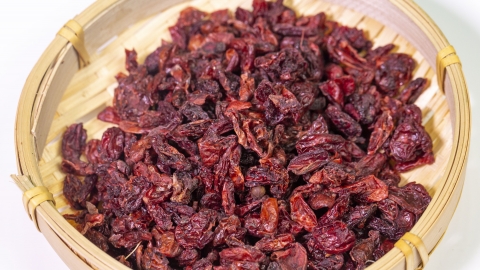Can freshly picked fresh cornus berries be used to make wine?
Generally speaking, freshly picked cornus berries are not recommended to be steeped in alcohol directly. Instead, fresh cornus berries should be processed before being used for making herbal wine. The specific explanation is as follows:

Fresh cornus berries contain certain amounts of moisture and impurities, which may affect the full release of medicinal properties. Through proper drying, the effective components in cornus berries can be better extracted and preserved, allowing them to exert their therapeutic effects of nourishing the liver and kidneys and astringing essence to prevent excessive discharge. Additionally, steeping fresh berries directly in alcohol might also affect the taste of the liquor, making it less pure and pleasant.
Freshly harvested cornus berries need appropriate processing, such as thoroughly washing, draining the moisture, and preferably removing the seeds or crushing the berries to promote the release of active ingredients. Afterwards, they should be mixed with an appropriate amount of white spirits or other base liquor, sealed, and stored in a cool, dry place for natural fermentation and soaking. This method produces cornus wine with better flavor and quality.
Before steeping, it is recommended to remove impurities from the fresh cornus berries, such as residual seeds, leaves, etc., and then air-dry or sun-dry them to ensure the herbs are dry and free of contaminants.





